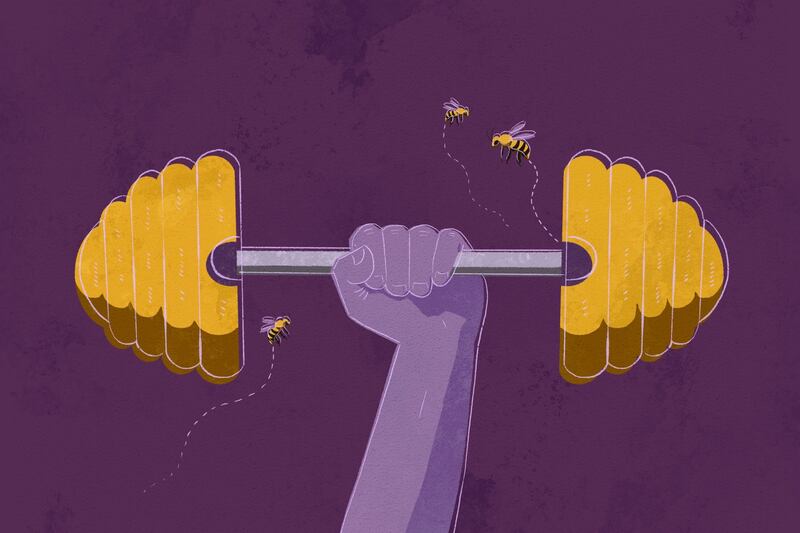Utahns are notoriously active. It’s not uncommon to see joggers plodding up Emigration Canyon in a snowstorm, or Nordic skiers heading out to Park City at 4 a.m.
It may not come as a surprise, then, to learn that the Beehive State took first place in a new study from Florida-based wellness company Life Extension as the healthiest state in America. But Utahns also fall below the national average for mental health.
Life Extension wellness adviser Dr. Michael Smith explained that the study analyzed metrics such as the share of adults in each state who eat fruits or vegetables every day, the percentage of those who are physically active, the portion of adults who consider themselves to have experienced few poor mental health days in a given month, the share of adults who haven’t been diagnosed with any coronary heart disease and the number of adults who drink or smoke sparingly or not at all.
In a couple of the categories, Utah outperformed the national average only marginally (59.2% of Americans eat fruit every day, whereas 62.4% of Utahns do the same), but in four of the categories — heart disease, tobacco use, alcohol use and levels of exercise — Utah led the rest of the country by heftier margins.
“It is not simply that Utah was above the national average in six of the eight categories,” Smith said. “Their No. 1 ranking was a compilation of how much better than the national average Utah was across all eight metrics compared to the other 49 states and Washington, D.C.”
The study analyzed eight health categories from the Centers for Disease Control and Prevention and found that Utahns are healthier than average Americans across six categories: exercise, good overall health, heart disease, drinking, smoking and eating fruits.
Smith said the results demonstrate a shift occurring over results of previous years. “It was somewhat surprising that Utah got the top spot when California is generally known as the most health-conscious state,” he explained. California came in as the 14th healthiest state in the study, which Smith said was lower than expected.
Following Utah — Massachusetts, Connecticut, Maryland (along with D.C.) and Hawaii rounded out the rest of the top five healthiest states in the country; while Kentucky, Mississippi, West Virginia, Arkansas and Louisiana rounded out the bottom five. “Many of the least healthy states are in the South, which is consistent with what we have seen in recent years,” Smith explained.
It’s not all good news for Utahns though.
The Life Extension study found Utah to be less healthy than the national average in two categories: mental health, by a hefty nine percentage points, and eating vegetables — though the latter was only by a third of one percentage point.
Multiple studies have shown that people living in high-altitude states like Utah have higher-than-average rates of suicide and depression due to lower atmospheric pressure at high altitudes that lower blood oxygen levels. Indeed, Utah is usually among the states with the highest suicide rates, and research points to the state’s high altitude as the likeliest determining factor.
What’s more, on its website, the CDC has explained that parents can feel the mental health burdens of their children, and that “caring for children can create challenges for parents, particularly if they lack resources and support, which can have a negative effect on a parent’s mental health.” In other words, Utah having the country’s highest number of children per family likely impacts the mental health of Utah parents; though many parents likely feel the tradeoff is worth it in the long run. Indeed, research suggests that parents are happier than nonparents, especially after children have been raised.
To improve one’s mental health, Smith recommends getting more sleep (“eight hours”) and learning to handle stress in healthy ways. “This could be a combination of taking mental health days off from work, speaking to a licensed psychologist or taking vitamins and supplements” proven to “enhance mood and mental outlook.”
It’s worth noting that the Life Extension study isn’t alone in shining a light on Utah’s strong health performance rankings among other states in the country.
As I reported in September, data from multiple sources show Utah does well across a multitude of other health metrics as well. The CDC lists Utah in its lowest drug overdose rated category; U.S. News ranks Utah as having the 11th best overall health care system in the country; the state has the sixth lowest fatal car accident rate, the third lowest rate of drug use, the third lowest COVID state death rate per 100,000 residents and the country’s absolute lowest rate of alcohol consumption and tobacco use.
Utah also ranks in the bottom half of U.S. firearm death rates, is ranked among the CDC’s five lowest homicide rates in the country, has one of the CDC’s 10 best life expectancy rates in America, and earlier this year was ranked as “the most heart-healthy state in the U.S.”
While experts explain Utah’s strong health outcomes in different ways — Smith said it’s likely because Utah “has a lot of nature which encourages healthy living,” and an officer at Utah’s Department of Health and Human Services told me in September that it’s likely due to the number of members of The Church of Jesus Christ of Latter-day Saints and their adherence to the religion’s health codes. One thing that’s certain is that Utah has become a state health care professionals in other states are eyeing as an example.
Dr. Haider Warraich, a physician and researcher at the VA Boston Healthcare System, told me in September that while many other Republican majority states continue to fare more poorly in health outcomes than Democratic majority ones, “(Utah) does seem to be an outlier.”


